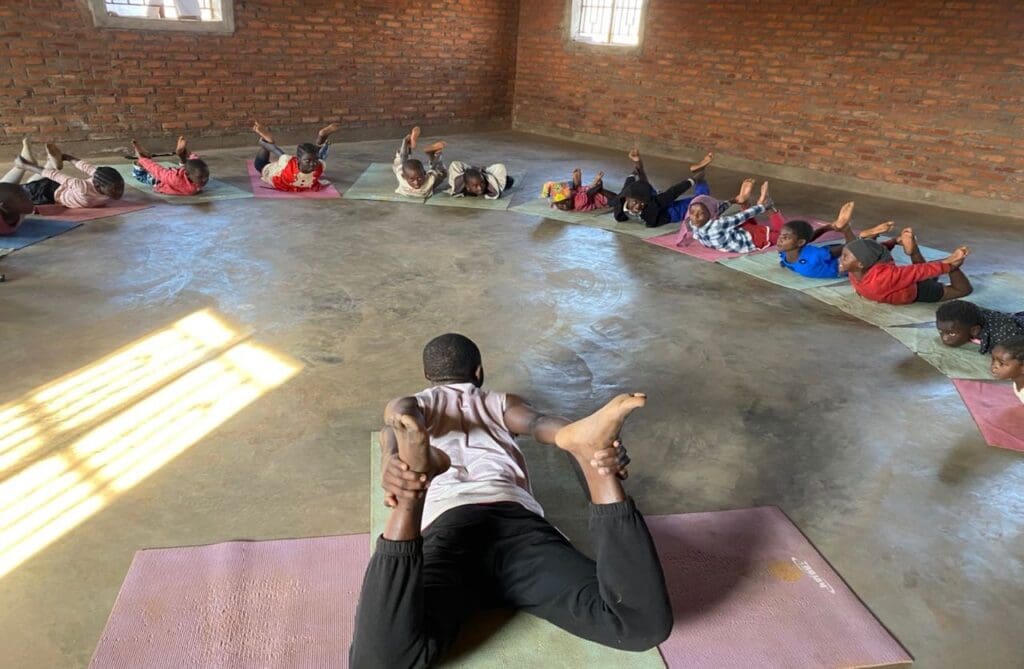
In Uvalde, Texas, healthcare workers, teachers, counselors, and community leaders are benefiting from contemplative wisdom practices to deal with extreme stress, loss, and trauma in the wake of the tragic mass shooting that took place there in May 2022.
In rural Colombia, women who have a history of being psychologically or physically mistreated are engaging in weaving as a tool for active meditation designed to promote wellness, self-knowledge, and connection.
And in Kenya, students are pursuing contemplative gardening to combat climate anxiety and cultivate environmental stewardship.
These projects are among the 14 inaugural recipients of Mind & Life’s Contemplative Changemaking Grants. Launched in 2022, the grants fund small-scale, impact-oriented work undertaken by individuals, community workers, and non-profit organizations that ground themselves in contemplative practices to achieve real impact in people’s everyday lives.
“Through these grants, we seek to encourage the expansion of contemplative practices and their benefits beyond the individual and into the community to support on-the-ground action, transformation, and flourishing,” said Mind & Life Program Manager nischal neupane.
Growing interest in contemplative approaches to social challenges was evident in the more than 250 grant applications submitted from over 50 countries. Contemplative practices ranged from traditional mindfulness-based interventions to less conventional applications like reflective writing, forest therapy, art, and mind-body-land awareness practices.
Supporting the well-being of youth and young adults emerged as a potent theme among grantees. With input from Indigenous elders, students in New Mexico, USA will receive mindfulness training to contend with overwhelming historical and contemporary trauma. At the Dzaleka refugee camp in Malawi, 25-30 yoga teachers will be trained to offer yoga to improve mental health, promote well-being, and build more resilient communities with the hope of reaching up to 15,000 children. And in California, USA, hip-hop is being employed as a contemplative tool for supporting the social and emotional well-being of young Black students.
Other projects focus on the health and well-being of marginalized populations. In Trinidad and Tobago, mental health strategies and tools will be offered to prisoners to complement their rehabilitation, reintegration, and resettlement. Women in prisons within the United States will receive introductory contemplative practice training to provide participants, who rarely have access to these practices, with contemplative tools for coping and emotion regulation. And in Asunción, Paraguay, mindfulness interventions will be provided to mothers and teachers of children living with blindness, low vision, autism, cerebral palsy, and other disabilities.
Other grantees are pursuing nature-based contemplative practices. In Oregon, USA, youth will reconnect to the land through meditation, mind-body-land awareness practices, exposure to Indigenous ecological worldviews, and reflective writing and art. Forest therapy sessions will help address the physical, psychosocial, emotional, and spiritual needs of vulnerable cancer patients in Chile. And climate action workshops will introduce young students in Kenya to contemplative gardening as a daily practice to combat climate anxiety and help cultivate environmental stewardship and agency.
Mind & Life believes global transformation is possible through the work of the mind, heart, and hand. We’re excited to see how the impact of these projects—and the stories that emerge—will help to increase awareness of and momentum around the role of contemplative practices in promoting positive social change.

